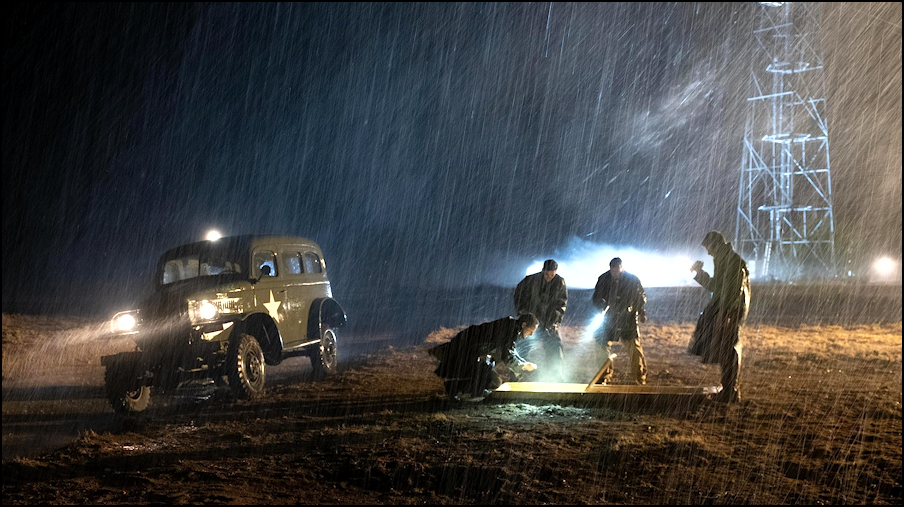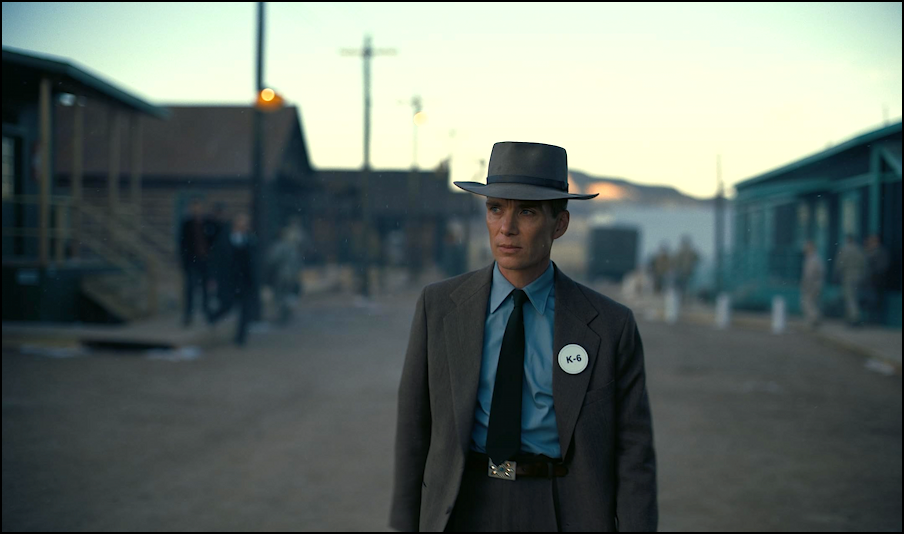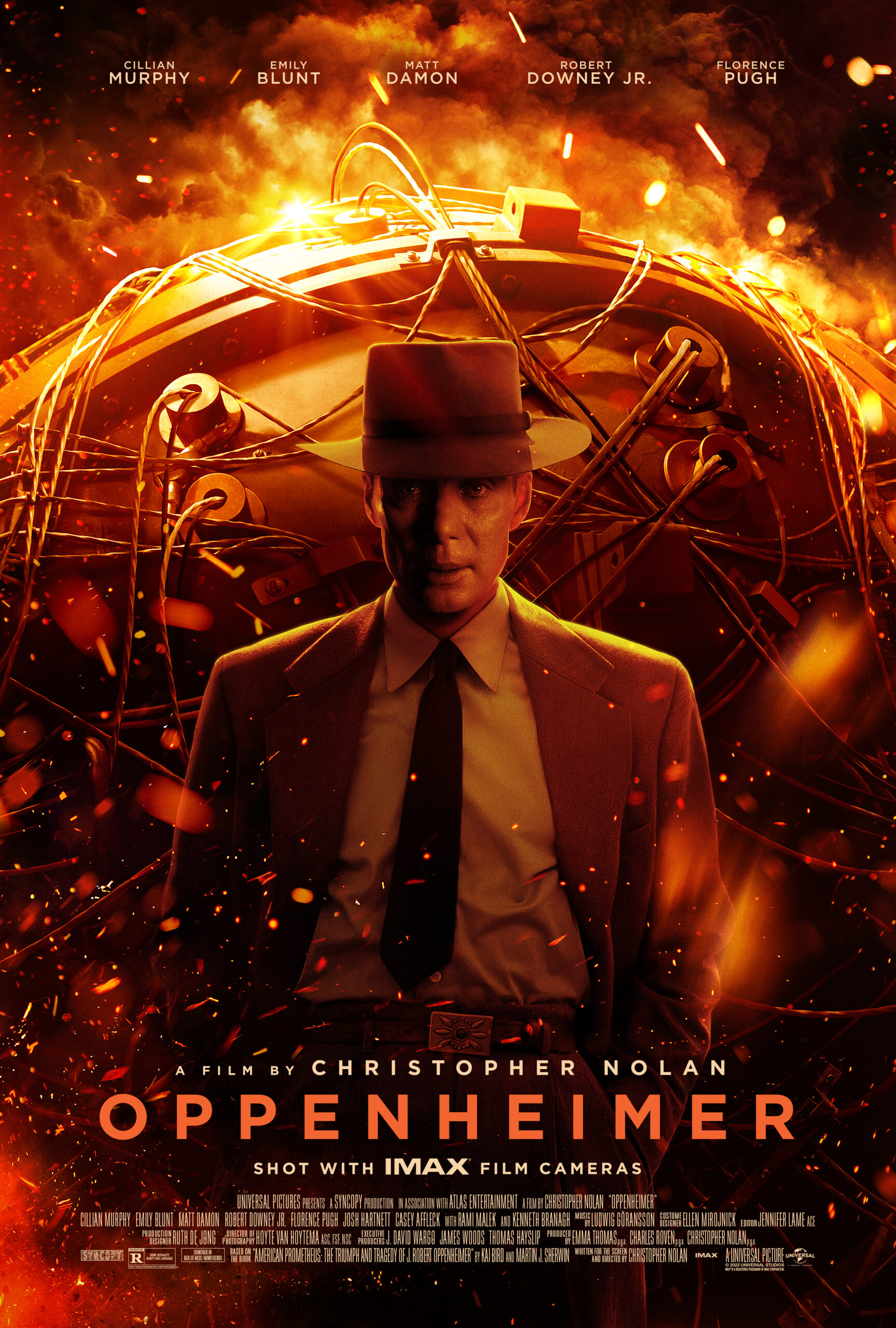The history of humanity has been all too intertwined with us inventing bigger and more efficient ways to kill each other. Spears beget bows and arrows, gunpowder begets cannonballs and artillery, along with rifles and pistols. Knives became swords, and little bombs become bigger, and bigger, and bigger bombs. One of the most pivotal moments of human evolution in this regard was the invention and deployment of the atomic bomb, dropped by the United States on two cities in Japan, Hiroshima and Nagasaki, on August 6 and 9, 1945, respectively.
The United States felt it was critical to create and deploy the a-bomb first; The Nazis were aggressively trying to develop their own a-bomb, as were our lukewarm allies the Russians. The task of figuring out all the abstruse physics fell on the shoulders of J. Robert Oppenheimer, a brilliant academic with a questionable background in an era where attending a lecture about communism could cause you to be summarily fired. Oppenheimer, directed by Christopher Nolan simultaneously explores Oppenheimer’s academic journey, the creation of The Manhattan Project in Los Alamos, New Mexico, the development of the atom bomb, and the withdrawal of his security clearance a decade later during the height of the Cold War.
Robert Oppenheimer (Cillian Murphy) was a complex character, intellectually curious and simultaneously naive about the political currents running through academia, the military, and the government during World War II. A physics genius who “saw” beyond the world around him, he was also a womanizer who endlessly got in trouble for pairing up with the wives of his colleagues. He flirted with communism in the 1930s even while his brother Frank (Dylan Arnold) married Jackie (Emma Dumont), a card-carrying member of the American Communist Party. Robert’s second wife Kitty (Emily Blunt) was a former Communist too and it’s never entirely clear whether Robert himself had communist leanings or not.

Nolan is infamous for his complex timelines and Oppenheimer is more of the same; viewers will need to be on their toes to keep track of the endless fluidity of the narrative. We see Oppenheimer at Cambridge debating with a great physicist of the day, then years later talking with Albert Einstein (Tom Conti) outside the Center of Advanced Studies at Princeton University, then earlier debating a nuance of nuclear fission with Edward Teller (Benny Safdie) in Los Alamos. There’s a color coding in the film too: Sequences in black & white are intended to be objective newsreel-type footage, while color sequences convey subjective, individual experiences.
It’s impossible for scientists to invent a weapon of mass destruction without having moral qualms, and the film spends a lot of time exploring the objections, fears, and anxiety of the various experts as the development of the a-bomb — and later the “super” hydrogen bomb – proceeds. General Leslie Groves (Matt Damon) gives “Oppy” some slack, knowing that scientists are tough to manage, but when Robert’s ego causes him to publicly humiliate Lewis Strauss (Robert Downey Jr) in a Congressional hearing, he’s made an enemy for life. Meanwhile, it’s Boris Pash (Casey Affleck) who stirs the pot with the FBI and J. Edgar Hoover, causing Oppenheimer’s trustworthiness to be questioned. But was Pash working alone?
Meanwhile, years earlier at The Manhattan Project, a complete and highly secure town built miles from anywhere in the New Mexican desert, the brilliant and temperamental scientists are trying to figure out how to turn a pile of uranium into the greatest explosion ever triggered. All managed by Robert Oppenheimer, who some residents love and others despise. Will the bomb explode? Will it ignite an unstoppable reaction that will destroy the entire atmosphere, killing the planet? Will America beat the Germans, and then the Russians, to be first to push the proverbial trigger?
Oppenheimer is an intense film with all these stories told simultaneously, and it’s also occasionally dreamy and meditative when Oppenheimer is puzzling out fundamental questions about matter, the atom, fission, and more. The “Trinity” test bomb did explode early in the morning of July 16, 1945, followed quickly thereafter by two more bombs detonated over Japan, but how we got there and the consequences thereafter turns out to be a great foundation for an excellent and surprisingly gripping 3-hour film.

Christopher Nolan long ago demonstrated his ability to pull together a cast and crew of A-listers to create excellent movies and he’s done it again with Oppenheimer. The sets, the cinematography, the interpersonal friction, the paranoia of the times, the naivety of the scientists, the bomb, it’s all beautifully done. This is a film that, once you understand how the narrative is woven together, will pull you in and keep you at the edge of your seat for the entire three hours. Be prepared to pay attention, though, because the story – adapted by Nolan from the book American Prometheus: The Triumph and Tragedy of J. Robert Oppenheimer by Kai Bird and Martin J. Sherwin – definitely requires an attentive viewer.
It’s definitely worth your attentiveness too. Nolan delivers what is easily one of the best and most important films of 2023, with an Oscar winning performance by Cillian Murphy. This might not be the most fun you’ll have in the theater this year, but it’s going to be the one to beat when the Academy Awards roll around in six months. Go see it on the biggest screen you can and enjoy a top-notch historical drama with an astonishing cast. Is there a parallel between the “scientists are going to invent stuff without considering the consequences” and our current angst around AI? Unquestionably. Just another factor to contemplate as you experience Oppenheimer.
This review originally appeared on PlanetDave.com as Film Review: Epic and Complex Biopic “Oppenheimer”.
